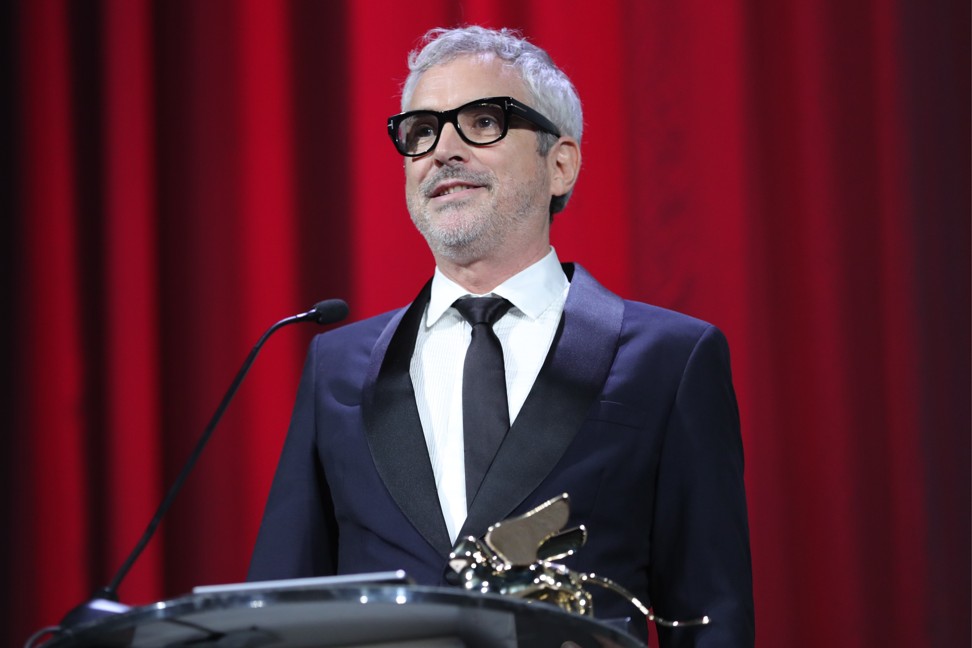
Venice film festival 2018: far right in focus, Westerns make comeback, and so does Zhang Yimou
Frenchman Jacques Audiard wins best director for Western The Sisters Brothers, while Chinese director’s martial arts epic Shadow will leave you slack-jawed
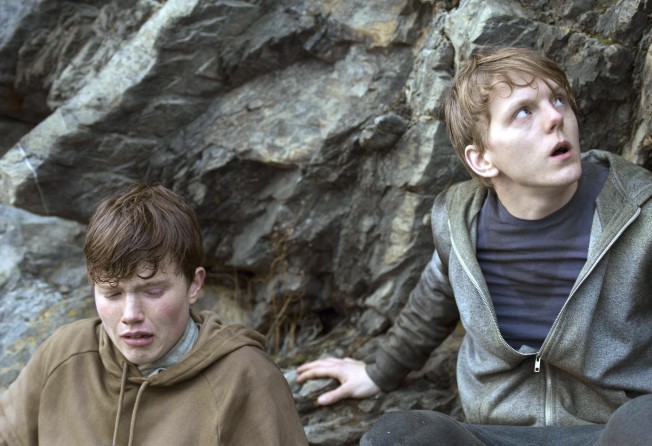
The return of the Western, the rise of the far right and a Mexican movie called Roma – these were among the topics of conversation at this year’s Venice International Film Festival.
When the line-up was announced, the 75th edition had been billed as one of the strongest editions in years, with new films from Jacques Audiard, Yorgos Lanthimos, Paul Greengrass, the Coen Brothers and Zhang Yimou to name but a few. It did not disappoint.
Alfonso Cuarón claimed the Golden Lion for his remarkable black-and-white autobiography, Roma. Cuarón, who had previously brought his sci-fi feature Gravity to the festival, is the second Mexican director in a row to win the Italian festival’s top prize, after Guillermo del Toro, for The Shape of Water.
Del Toro was head of the jury this year, but could hardly be accused of favouritism; Roma was a critical hit from the moment it was unveiled.
One of several Netflix-produced titles that staked a claim at the festival, Cuarón’s film, set in 1971, sees life through the eyes of Cleo (Yalitza Aparicio), maid to a fragmented middle-class family.
The details of everyday life are perfectly observed, as Cuarón slowly but surely builds to a tremendous crescendo of events and emotion in the lives of Cleo and her employers. It has one of the best third acts in recent memory.

Another much anticipated Netflix competition entry was Paul Greengrass’ 22 July, which premiered ahead of its October 10 release.
From the director of Bloody Sunday and United 93, this was yet another clinical look at a tragedy that shocked the world, in this case the horrifying actions of Anders Behring Breivik in July 2011, when he killed 77 people – including 69 on the island of Utøya – many of whom were under 18.
The massacre has already been chronicled in Erik Poppe’s real-time drama U – July 22, and Greengrass’ film sets out to look at its aftermath and the way Norway reacted to Breivik, a far-right loner who penned a hate-filled manifesto railing against immigrants.
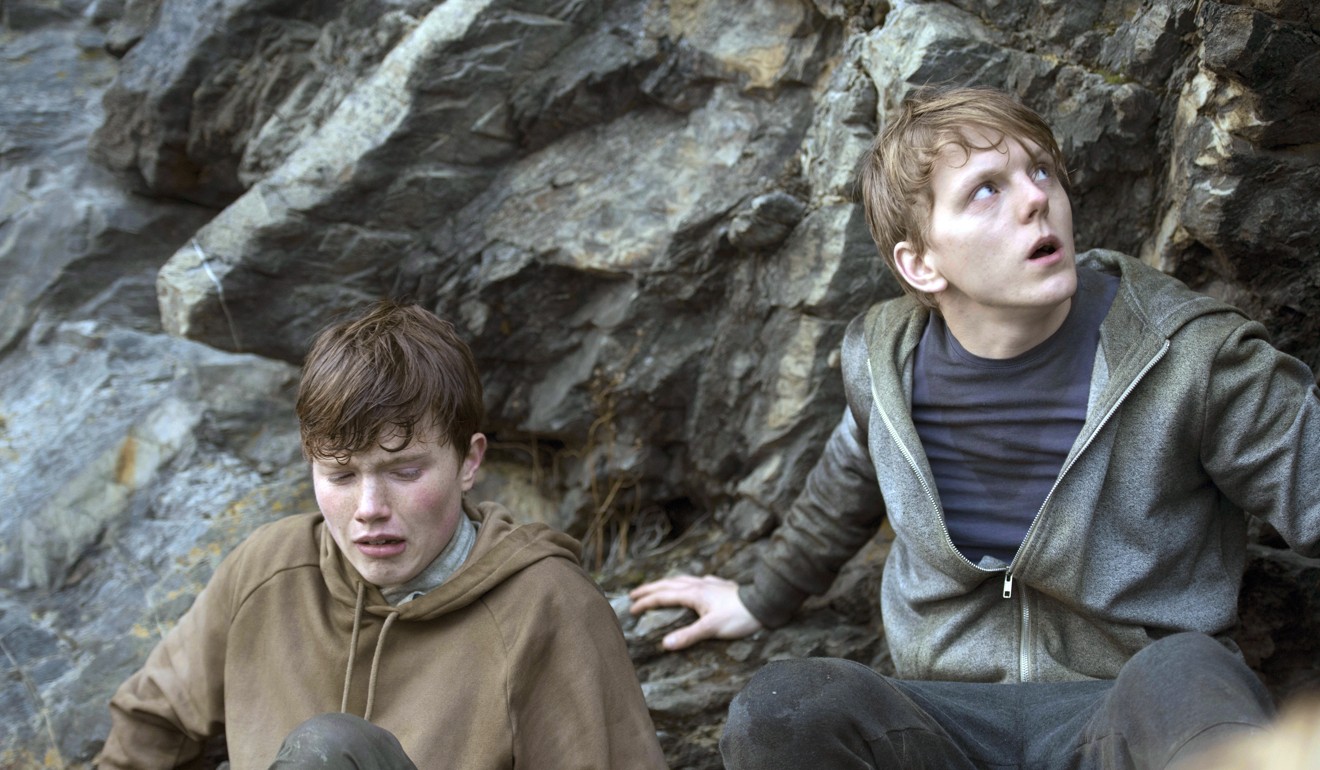
Anders Danielsen Lie gives a chilling turn as Breivik, but he is just one element of a sweeping story showing how a nation set out to heal itself with a dignified defence of democracy.
Another film dealing with the far right is Errol Morris’ American Dharma, a documentary portrait of Steve Bannon, former adviser to Donald Trump. Morris took an absolute battering from journalists astounded that he would give Bannon a platform for his alt-right views. It did not help that the film, effectively a head-to-head interview, arguably went too soft on Bannon.
Morris has been here before: he won an Oscar for The Fog of War, his film about former US secretary of defence Robert McNamara, and he questioned another former secretary of defence, Donald Rumsfeld, in The Unknown Known.
But if they were men reflecting on deeds past, Bannon is still highly visible, peddling a disturbing ideology that is gaining increasing traction across the globe. Morris rarely had his opponent on the ropes.
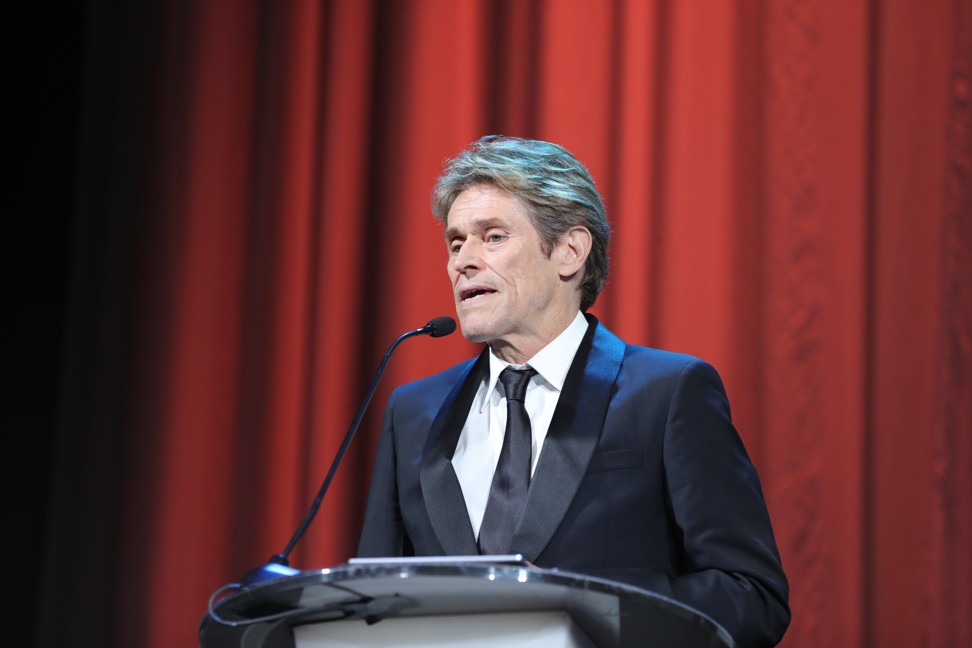
If we needed any reminder of the dangers of Bannon’s thinking, Florian Henckel Von Donnersmarck’s competition entry Werk Ohne Autor (Never Look Away) provided it. The German director made one of the great films of the 21st century so far, The Lives of Others, but followed it up with vapid Hollywood confection The Tourist. Here he returned with a three-hour epic that follows the rise of a young artist (Tom Schilling) before, during and after the second world war.
Loosely inspired by the life of Gerhard Richter, it’s a film that looks at the axis between art, history and politics, as Schilling’s Kurt falls for a woman (Paula Beer) whose gynaecologist father (Sebastian Koch) has a hidden Nazi past.
Koch in particular is excellent playing a man, not a monster, and it would have been acceptable to see him win best actor – a prize that instead went to Willem Dafoe for his turn in Julian Schnabel’s At Eternity’s Gate, about the final years of another artist, Vincent van Gogh.
There wasn’t much Asian cinema, with cult Japanese director Shinya Tsukamoto’s minimalist Samurai film Zan (Killing) the continent’s only competition entry.
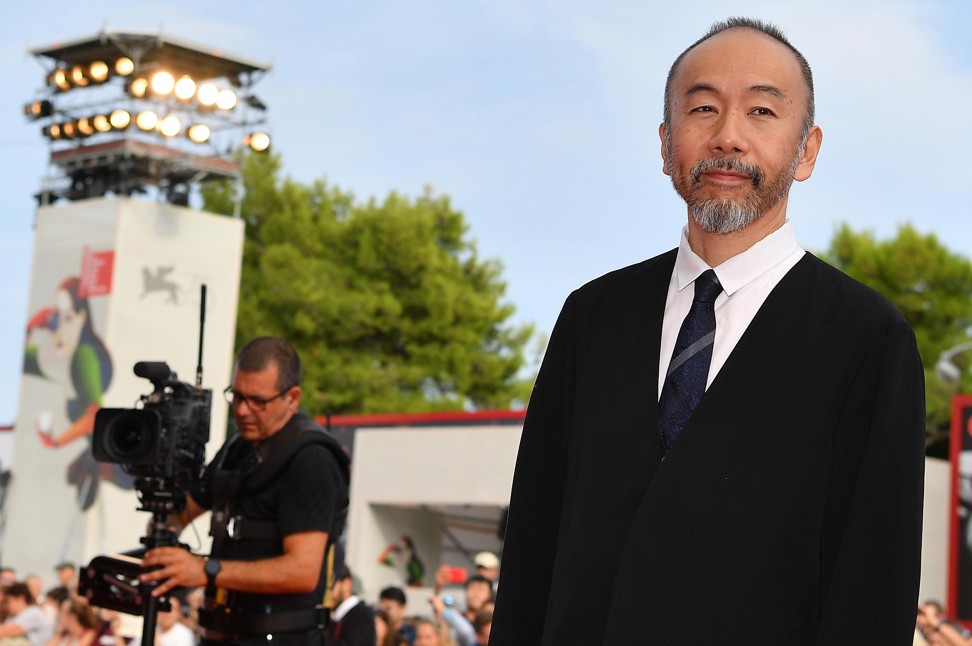
But Chinese director Zhang Yimou returned out of competition with the sensational Ying (Shadow). This story of warring nations was every bit as exhilarating as Zhang’s earlier martial arts movies Hero and House of Flying Daggers, with sumptuous production design by Ma Horace and set pieces that will leave you slack-jawed.
Two of the more enjoyable competition outings were Western-themed and both were duly rewarded by the jury. Jacques Audiard’s The Sisters Brothers marked the English-language debut of the French director behind A Prophet.
Audiard was given best director for a finely tuned, comedy-tinged story about two bounty-hunting siblings (Joaquin Phoenix and John C. Reilly) who became embroiled in a hunt for gold with a man they were sent to kill. The influence of John Huston’s The Treasure of the Sierra Madre loomed large.
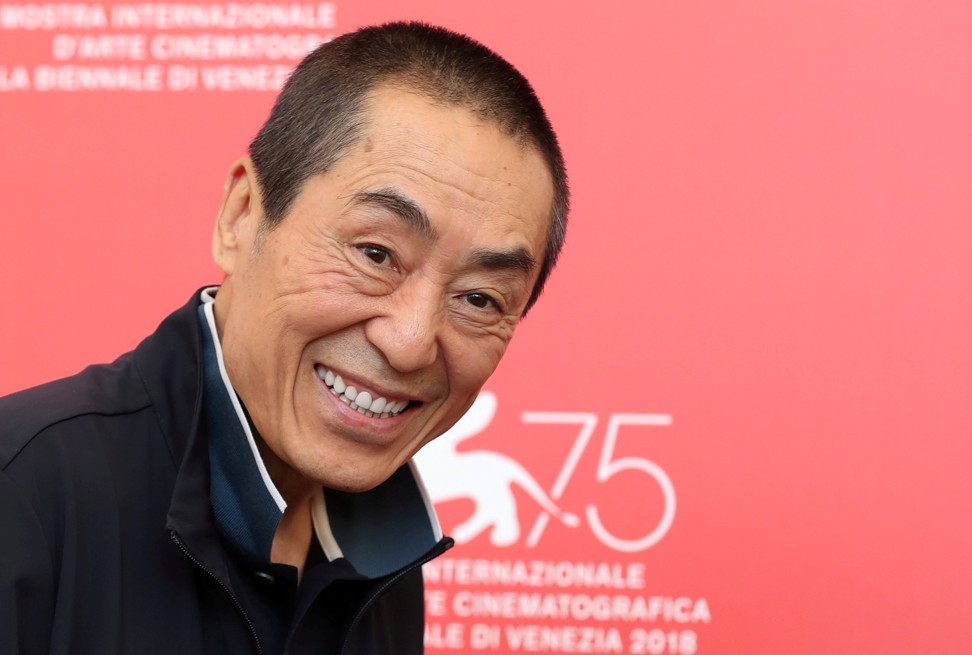
Joel and Ethan Coen’s The Ballad of Buster Scruggs, which won the best screenplay award, is a six-part Wild West anthology that is hugely enjoyable, despite its scattershot approach.
Framed like stories from a book, the first sees Tim Blake Nelson as the titular singing sharpshooter – a short that spins Coen brothers fans right back to their early exuberant comedies such as Raising Arizona. But with curious episodes, such as “The Meal Ticket” featuring Liam Neeson, the tone gets progressively more melancholy.
Another darkly comic outing was Yorgos Lanthimos’ The Favourite, which took both the Grand Jury Prize (second after the Golden Lion) and best actress for Olivia Colman, who must surely be in with a shout for an Oscar for her turn as Queen Anne, the British monarch who oversaw the union of England and Scotland during her reign in the early 1700s.
As might be expected from the director of The Lobster and The Killing of a Sacred Deer, this is not your typical corset drama.
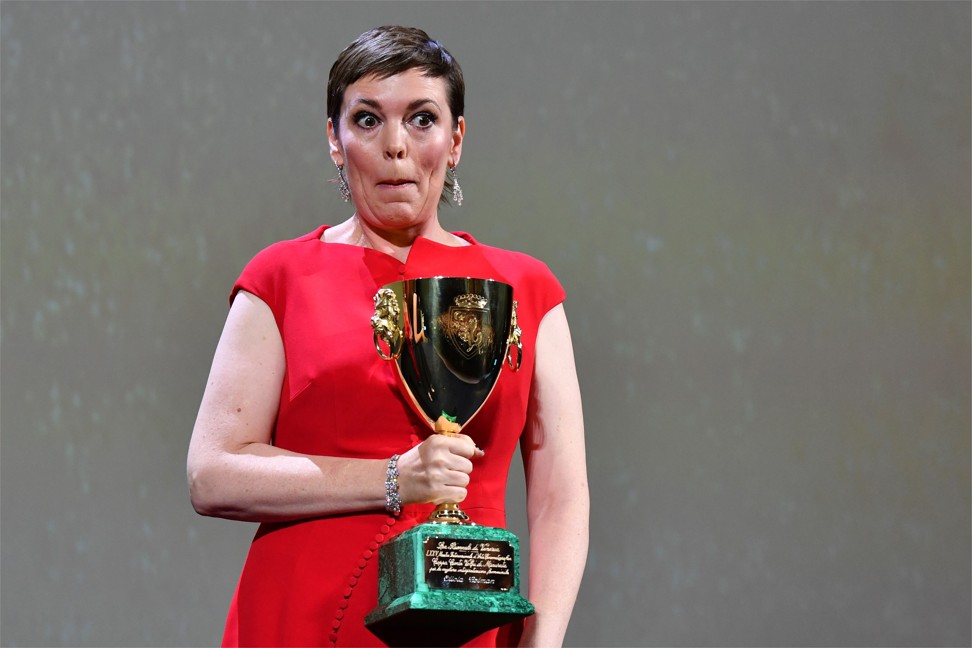
Hinged on a bizarre love triangle between the queen, her confidante Lady Sarah (Rachel Weisz) and Sarah’s cousin, Abigail (Emma Stone), a former aristocrat who has fallen on hard times, it is an emotional chess match between power-grasping courtiers.
But there’s great sadness too, embodied by Colman’s masterful turn as the emotionally traumatised queen who saw 17 of her children die in childbirth or at a young age.
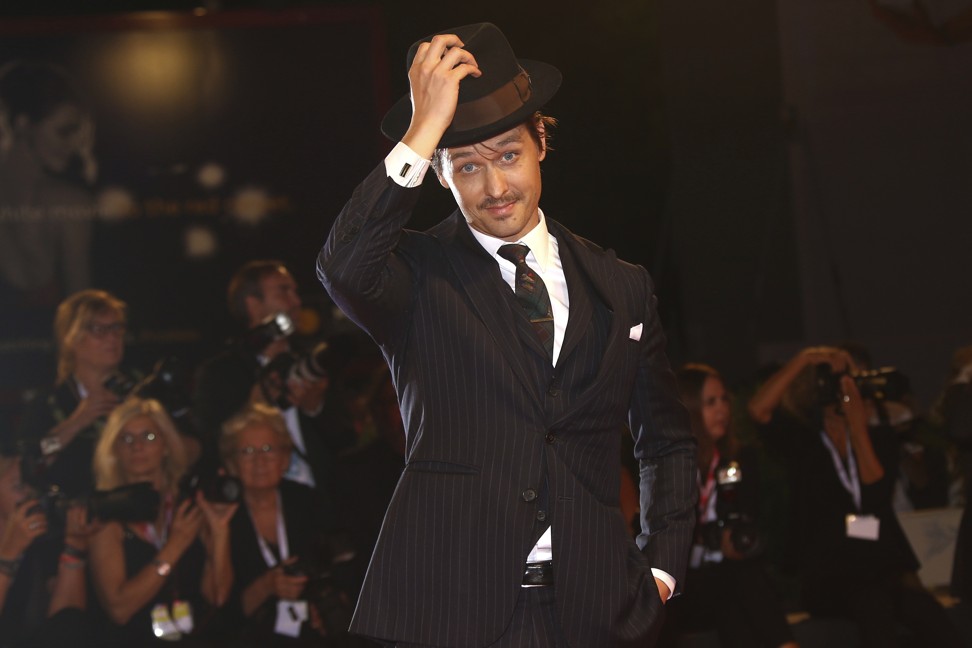
Perhaps the most heated screening came towards the end, in the shape of Jennifer Kent’s The Nightingale, which won the Special Jury Prize and the Marcello Mastroianni Award for Young Performer for its star, Baykali Ganambarr.
This superb revenge tale set in Tasmania, Australia, in the 1820s was the only film directed by a woman in competition – an imbalance for which artistic director Alberto Barberra was heavily criticised.
It caused one Italian critic to direct an audible sexist slur at Kent (also director of The Babadook) as the credits rolled – an ugly end to what was a provocative and powerful festival.
Want more articles like this? Follow SCMP Film on Facebook